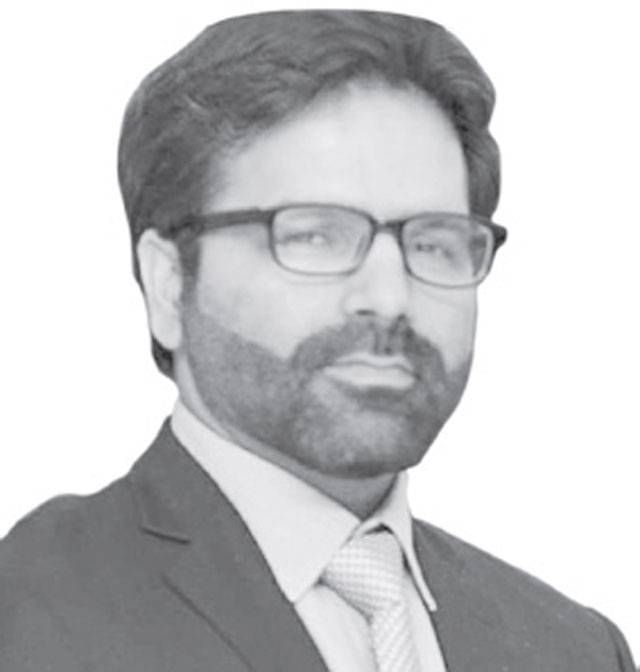No number of cinematic productions can capture the turn of events the world took after two hijacked planes hit the Twin Towers in New York City, and the towers collapsed. Worldwide change is usually a slow process that happens over centuries. But the rise of surveillance states, a shaking sole superpower and subsequent rise of multiple powers, the biggest ever paradoxical hit to civil liberties, Muslims and Islam stigmatised, and conflicts that never end are some of the changes the world saw rather quickly now that we think of it in retrospect. The evil of terror had to be rooted out, or at least that was what the mightiest military power of the world set out for, but the terror persists, power has diluted itself and multi-polarity lingers where the defeated Soviet Union of yesterday is today’s Russia – one of the shareholders of the diluted power; fighting a war that sees no decisive end in sight.
Such are all the post-9/11 conflicts; a world in waiting, a war that doesn’t end. All the Muslim-majority countries of the world where the US set foot to fight its ghost enemy called terrorism have been in turbulence ever since, be it Iraq, Libya, or Afghanistan. The US ultimately had to end its troops’ presence from most of these battle fronts because the war was getting too costly to continue. But the night of terror and war never ended for millions of people as they were all traces of a normal life.
For the rest of the world, the “normal” is a different normal now. Nation states are in fact states that surveil their populations as a routine procedure that is aimed at nothing but the security of people themselves. These same nation-states are closed and averse towards outsiders; perpetuating hate crimes as an express desire to not entertain diversity. These very nation-states have sophisticated, intricate laws to indefinitely detain someone who ushers a word that in some sense of the word is a threat to the nation’s security. These very nation-states actively seek to govern the digital space.
A clear picture of anarchy is today’s geopolitically complicated world where America must safeguard its interests and power by limiting China and where China seeks to fill the voids left by America’s passionate battle fronts with geo-economics. But the conflict dynamics keep on turning even more complex with every passing day. Regardless, the US has jumped into patronage a connectivity route that has been received as a counter to China’s Belt and Road (BRI). Emerging from the floors of the 18th G20 Summit in Delhi, the India-Middle East-Europe Economic Corridor (IMEC) is in its infancy and it is difficult to say how and when it will be materialised. But it has surely raised eyebrows about the role of certain countries, especially Saudi Arabia.
Saudi Arabia’s great leap and opening begs the question of whether it will be able to sustain it. With a history of partnership with the US, warming relations with China, and a firm identity in the Muslim world – its geopolitical role will remain interesting. But how far it takes matters that involve its Muslim identity seriously is also another interesting thing to see. Normalisation with Israel stands as the most pressing development right now that can easily compromise Saudi Arabia’s identity for Muslims across the world.
For Pakistan and Afghanistan, left under the thick shadows of America’s war, a world in flux is hardly ready to settle down. A surge in terror attacks in Pakistan is a grim reminder that the apocalypse is not over yet. Trying to rebuild a country, Afghanistan’s new rulers are claiming space in multilateral forums such as the recent Moscow Format in Kazan. Collectively, both countries are faced with the residue of war in the form of militant groups like the TTP and ISKP. In strategic silence, both are aware of the trouble and in backchannel dialogue, efforts are underway to find a way out. But since the social fabric has been infiltrated by extremism, tough choices await.
Tuesday, December 03, 2024
The World Afflux

11:03 AM | December 03, 2024
CM Maryam Nawaz launches ‘Suthra Punjab’ for clean, waste-free province
7:14 PM | December 03, 2024
ATC summons Adiala Jail chief after Imran Khan's sisters denied meeting
4:06 PM | December 03, 2024
Vawda claims Imran Khan’s Twitter used for propaganda
3:46 PM | December 03, 2024
Massive fire erupts at Rimpa Plaza in Karachi
3:22 PM | December 03, 2024
Government drafts Cybercrime Bill with strict penalties for fake news
3:14 PM | December 03, 2024
-
Nationwide internet disruptions cause major challenges for users
-
Nationwide internet disruptions cause major challenges for users
-
Gallup survey: 47pc of Pakistanis never used trains
-
Digital nomadism redefines work and travel across the globe
-
Lahore tops global pollution rankings as smog worsens, AQI reaches hazardous levels
-
Hunger crisis to increase in South Sudan, warns UN
Biden’s Last Gasp
December 03, 2024
Slashing Inflation
December 03, 2024
Settling the Score
December 03, 2024
Selective Morality
December 02, 2024
Disconnected Reality
December 02, 2024
Curtailing Gas to Captive Power Plants
December 03, 2024
Lack of Facilities at an Institution
December 03, 2024
Paralysed Polio Campaign
December 03, 2024
Parachinar Under Terrorism
December 03, 2024
Electricity Theft and Defaults
December 03, 2024
ePaper - Nawaiwaqt
Nawaiwaqt Group | Copyright © 2024





